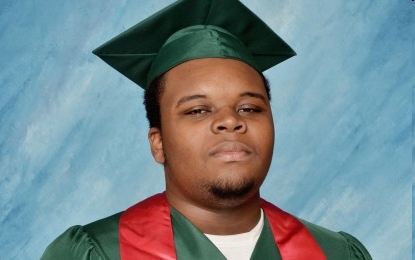Mourners gathered in Ferguson earlier this week to bury Michael Brown, 18, gunned down by Officer Darren Wilson, two days before he was set to begin college. In honor of Brown and his family, this is a clarion call to the South Asian community at large to demonstrate solidarity with the protesters in Ferguson and with the organizations and activists that are trying to stop police brutality all over the country.

South Asian Americans are natural allies in the fight against racist law enforcement practices, as we are no strangers to religious and racial profiling. We all know someone who has been stopped by the cops one time too often, whose mosque is infiltrated by members of law enforcement, who gets harassed in public due to their religious headgear. Many of us are resigned to being stopped “randomly” when its time to board a flight or cross a border. We spend time wondering whether the authorities are keeping files on us or our family members.
We know what it’s like to be singled out because of things we can’t control, like our race, our community, or our religion.
The country is currently in an uproar about a very different kind of discrimination: the discrimination and violence that African-Americans face by law enforcement and self-styled vigilantes. [pullquote align=”right”]The furor in Ferguson is a manifestation of the rage that exists at the injustice of this situation.[/pullquote]It is a kind of bigotry borne out of the assumption that black folks in this country are inherently lawless criminals or thugs, and it goes back as far as slavery. Despite common assumptions that racism was definitively defeated during the Civil Rights Movement, the African-American community has long insisted that the work hasn’t been completed yet. The evidence suggests that they are right; black people in America still do not lead equal lives, as compared to white people. The furor in Ferguson is a manifestation of the rage that exists at the injustice of this situation.
Though our struggles aren’t the same, we, as South Asian Americans, have every reason [pullquote]Though our struggles aren’t the same, we, as South Asian Americans, have every reason to support the African-American community at this time.[/pullquote]to support the African-American community at this time. We must work towards change, so that no black person ever again faces the experience of Michael Brown, gunned down by the police with their hands up, begging for their lives. This involves a commitment, by progressive South Asian Americans, to work towards change in our own communities so that we do not inadvertently work to reinforce antiblack racism in this country, which is at the root of the police brutality which murdered Michael Brown.
As American citizens and residents, we cannot help but be aware of the enormous racial disparities that exist in this country; of a story that has been unfolding long before most of us came to this country. It is a story of stark division between black and white in America, of immense injustice, of slavery and apartheid, of implicit segregation and discrimination.
South Asian Americans have existed as bit players in this grand racial narrative, presenting on either side of the black/white binary at various times throughout history. At times, we have allied with black people and other communities of color, choosing to identify as distinctively non-white, and have therefore faced similar racism from the white establishment.
At other times, we have embraced the role of model minority; allowed ourselves to be hailed as “the good ones”, dark-skinned people who appear to have functional family lives and work ethics (as opposed to the “dysfunctional” African-American community), told to serve as role-models for black people to follow. It is in this role that some of us have sided with the white establishment, and have reinforced antiblack racism.
Unfortunately, we often come to America with our own special brand of indigenous antiblack racism — centuries of British colonial racism plus millennia of casteist colorism have colluded to create a deep suspicion of anyone who looks “African” in South Asian culture.
Some of us follow black people around in our stores, we report “suspicious” looking black youth to the cops, we choose to not date black people or forbid our children to date or befriend their black peers. Many of us are fiercely proud of our own heritage and how successful we South Asians have been in America, neglecting to understand that we are a mostly self-selected population; it is the already-privileged who have the strongest chances of immigrating to the United States, and that we come with certain social and economic benefits that the native African-American population doesn’t have.
It is in this capacity that we urge you to #StartTheConversation with your South Asian friends and families about Ferguson, [pullquote]#StartTheConversation with your South Asian friends and families about Ferguson.[/pullquote]and why it is important that we stop perpetuating or staying silent on racist views in our communities, why we should vocally support those in the African-American community who are working towards change, and why we should stop keeping silent when our white friends and colleagues find ways to justify Darren Wilson’s murder of Michael Brown.
Start the conversation in your mosque, temple or gurudwara, your local college South Asian association, your Indian grocery stores and community centers. Start it on Facebook and Twitter, get people who don’t often talk about these issues to open up. Work to change hearts and minds. Because in the end, the only people who can change the views of our community, are us.
Jaya Sundaresh lives in Chandigarh, India. She grew up in various parts of the Northeast in the U.S. before deciding to study political science at McGill University. Follow her on Twitter at @anedumacation.













3 thoughts on “South Asians and Ferguson: #StartTheConversation”
Comments are closed.